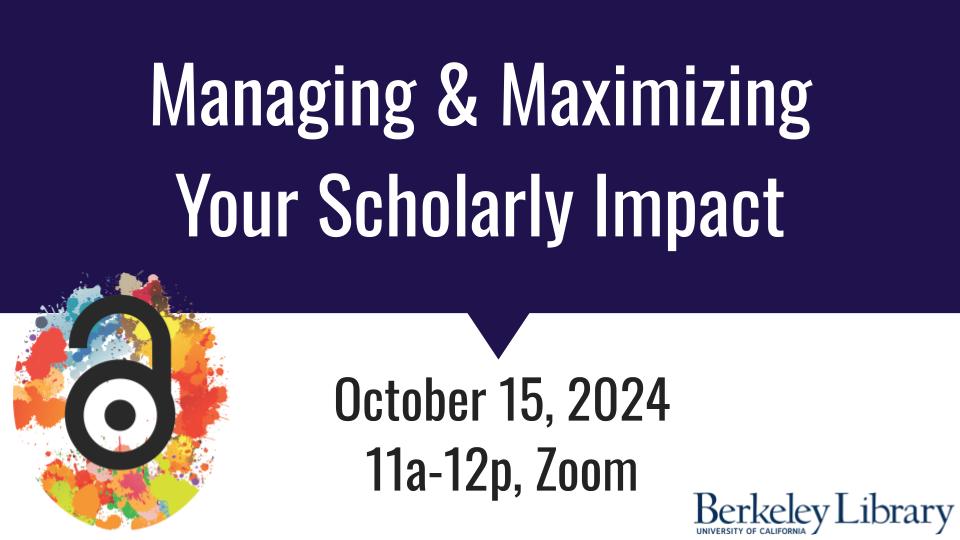Date/Time: Tuesday, October 15, 2024, 11:00am–12:00pm
Location: Zoom. RSVP.
This workshop will provide you with practical strategies and tips for promoting your scholarship, increasing your citations, and monitoring your success. You’ll also learn how to understand metrics, use scholarly networking tools, and evaluate journals and publishing options.
